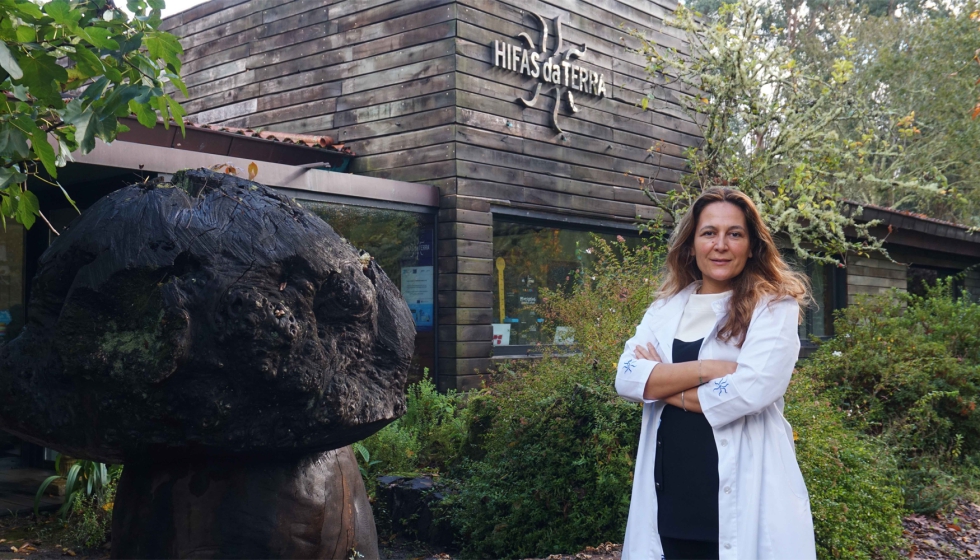The company has built, trough Hifas Biologics, a platform with an innovative approach for the early discovery of new antibiotics obtained from natural sources, using one of the mycotheques (fungal library) with the most species and strains in Europe
Antibiotic resistance is a global threat, according to the World Health Organization (WHO), who has already identified antibiotic resistant bacteria as the next possible pandemic and the top priority for global research.
In fact, nowadays, one out of every five bacterial infections are resistant to some of the currently available antibiotics; so much so, that these infections cause 33.000 deaths every year in Europe (4.000 deaths in Spain, more than car accidents), and they generate healthcare costs of more than 15.000 million Euros. The evolution of this issue is so concerning that the WHO estimates by 2050, the number of deaths attributed to antibiotic resistant bacteria will be around 10 million, surpassing even cancer related deaths.
This is the alarming situation that Hifas Biologics intends to help out on with the development of new antibiotics of fungal origin.
Doctor Catalina Fernández de Ana, company promoter, highlights that “since the first uses of antibiotics on a clinical level, from the begginings of the XX century until today, we have discovered a multitude of families of antibiotics, and in a lot of cases, fungi have played a pivotal role. It’s important to remember, penicilin was isolated from a fungus, and it has contributed towards the saving of more than 200 million lives worldwide since its commercialization in 1942. What’s more, fungi have also been the source for the development of multiple drugs being used currently, such as the statins, cyclosporines and taxol”
However, despite their ennormous and proven pharmacological potential, it is calculated there are around 1,5 million species of fungi, and only about 100.000 have been scientifically and functionally identified and described, there being an enormous potential gap when facing the discovery of new therapeutic molecules, and supporting the fact that the fungal kingdom represents the perfect niche in which to look for the antibiotics of the future.
For Santiago Pérez, project manager of this initiative, “the global antibiotics market will grow to reach 45.300 million dollars in 2028, leveraging the need for the use of increasingly specific antibiotics which impede the creation of new resistances”.
Starting from the knowledge in biomedic research of fungi developed for more than 20 years by Hifas da Terra, the company has built, trough Hifas Biologics, a platform with an innovative approach for the early discovery of new antibiotics using natural sources, utilizing one of the mycotheques (fungal libraries) with the most species and strains in Europe. Hence, Hifas da Terra jumps into the pharmaceutical industry, building Hifas Biologics as an active agent for the change in biotech research, unlocking the power of fungi for the development of antibiotics.
Hifas Biologics has been a project incubated for more than a year trough Hifas Innovation Hub (the group’s corporate venture) and after the initial identification of several antimicrobial metabolite and peptid fragments, it plans on establishing itself as an independent company by the end of the year, reason why they are increasing their funding. The company plans on catching additional funds trough international aid iniciatives for the multirresistant bacteria research that several goverments, such as the European or American goverment, in collaboration with big multinational pharma companies, have set in motion, indicative of the need to prioritize this research field trough which we can combat antibiotic resistance with assurances.
Original Article: Hifas da Terra da el salto a la industria farmacéutica a través de Hifas Biologics – Redacción Interempresas (30/10/2023)
For BIOGA, it is a priority to promote intersectoral collaboration between entities and to power networking activities, both national and international. If you want to know more about us, please click the following link.
- Mestrelab will inaugurate a new research center in 2024
- BIOGA propells employment for the youth with the Xuventude Mentoring na Empresa program
- AOTECH wins the III edition of “Ebro Talent: Caring for innovation”
- Qubiotech implements their Artificial Intelligencein the Radiodiagnostics centers of Madrid
- The IV Zendal awards already have their award-winners
- A group from the USC will coordinate a global project to fight against unknown viruses
- Innopharma grows their capabilities to improve Spanish biotech
- Qubiotech comercializes software capable of analyzing brain imaging automatically
- CiMUS and ABAC Therapeutics makes inroads in the fight against antibiotic resistant bacteria
- Innovation with Galician DNA: KeyBiological uses ozone to create highly effective cosmetics

